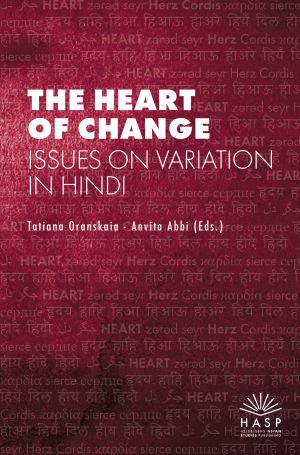Comment citer
Licence (Chapitre)

Ce travail est disponible sous licence Creative Commons Attribution - Partage dans les Mêmes Conditions 4.0 International.
Identifiants (Livre)
Publié
Téléchargements
Conative:Completive Contrast in Hindi-Urdu Aorist Forms
Semantic contrast in the use of compound versus non-compound verbs in Hindi has been analysed by many scholars. Compound verbs (sequences of the main verb, conveying the basic meaning and the so-called ‘vector’ or ‘polar’ verbs, conveying attitudinal and aspectual specifications) are usually described as marked members in the opposition complete/incomplete action. It will be shown in this paper that compound verbs have completive meaning only in the case where the main verb is telic. If the main verb is not telic, the compound verb denotes the beginning of the action.
Almost all scholars (cf., e.g. Hook 1974; Nespital 1997; Montaut 2004) are of the opinion that the aorist forms generated from simple verbs are compatible with some arbitrary end point and may be followed by a culmination-cancelling clause. Contrary to this, the aorist forms produced from compound verbs imply that the event has culminated at its natural endpoint. However, in certain cases the compound verbs may also be compatible with an arbitrary endpoint (Kothari & Arunachalam 2009). The paper seeks to demonstrate that this dichotomy of compound verbs is based on the semantic properties of the theme object of the utterance: if it is incremental, the aorist form of a transitive compound verb may indicate only partial, but not complete change in the state of the theme.
Aorist forms of compound verbs are never used in the following cases: 1) the state of the object changes instantly; 2) the verb contains a conative component in its semantics; 3) the state of the object has not undergone any change.
Keywords Hindi aorist, compound verb, telic verb, completive meaning, incremental theme









